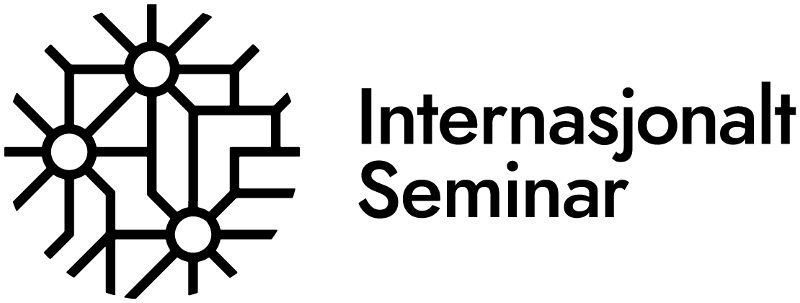Debattmøte om Indias rolle i en multipolar verden / Debate meeting about India’s role in a multipolar world


NORWEGIAN: India er verdens største demokrati og en alliansefri stormakt med mange fortrinn. Samtidig er statsminister Narendra Modi blitt kritisert for å dra landet i en autoritær retning over ett tiår og for å stå for nær Putins Russland. Bør vestlige land være mer skeptiske til å samarbeide med India?
ENGLISH:
India is the world's largest democracy and a non-aligned state with a wide range of advantages. At the same time, Prime Minister Narendra Modi has been criticized for steering the country in an authoritarian direction over a decade and for being too close to Putin's Russia. Should Western countries be more skeptical about cooperating with India?
NORWEGIAN:
Internasjonalt Seminar er et informasjons- og debattforum i Tromsø, som gjennom foredrag og paneldiskusjoner tar opp nord/sør-problematikk, miljø/klima, fattigdom/utvikling og krig/fred som sentrale tema.
Torsdag 11. april kl. 19.00-21.00, på Tromsø bibliotek holdes det et nytt møte i Internasjonalt Seminar.
Til tross for at India er 'verdens største demokrati' og den femte største og raskest voksende økonomien i verden, forblir India i stor grad ukjent for mange i Norge.
Som en atommakt og storimportør av våpen, med ambisjoner om å ta lederskap i en multipolar verden, er Indias fremvekst på den globale scenen stadig vanskeligere å overse.
Vestlige land har en spesiell interesse av være handelspartnere med India, men også at landet kan utgjøre en geopolitisk motvekt til 'Kina-trusselen'.
Men i vestlige land finnes det imidlertid fortsatt et betydelig kunnskapsgap om India.
Seminaret tar opp hva dette kunnskapsgapet innebærer, ved å se nærmere på kryssende kontekster bestående av nord-sør internasjonale relasjoner, sikkerhet og geopolitikk, og tilstanden til det indiske demokratiet etter tiår med hindunasjonalisme under Modi.
Spørsmål som vil bli diskutert under debattmøtet:
DELTAKERE:
Peter Stuart Robinson
Doktor i filosofi og førsteamanuensis ved UiT Norges arktiske universitet, Institutt for samfunnsvitenskap.
Robinson vil innlede med en innføring i Vestens forventninger til, relasjoner med, og holdninger overfor India. Han vil berøre politikken som preger nord-sør-relasjoner og Vestens holdninger til autokratiske og autoritære stater de anser som allierte.
Han vil videre diskutere Vestens forventninger til India som: en handelspartner, demokratisk alliert og geopolitisk motvekt til Kina.
Divya Rao
Masterstudent i fred og konflikttransformasjon ved UiT, Norges arktiske universitet. Har omfattende kunnskap fra å arbeide innenfor flere forskningsprosjekter i India.
Rao vil redegjøre om gapet/balanseringen mellom Vestens forventninger til India som en demokratisk geopolitisk alliert kontra tendenser mot svekkelse av demokratiet og menneskerettigheter i Modis India.
Da vil Rao også gi en kort innføring om hindunasjonalisme (Hindutva), drøfte hvordan Hindutva definerer selve grunnlaget og etoset for det nåværende regimet, og at det former Indias utenrikspolitikk under Modi.
MODERATOR:
Marcela Douglas Aranibar
Instituttleder ved Senter for fredsstudier (CPS)

Internasjonalt seminar har et program med 25-30 åpne møter i året.
Seminaret støttes av Tromsø kommune og koordineres av FN-sambandet Nord og Seksjon for internasjonalt samarbeid (SIS) ved UiT Norges arktiske universitet.
I tillegg støttes seminaret av Tromsøs humanitære organisasjoner, solidaritets- organisasjoner og studentorganisasjoner.
ENGLISH:
The International Seminar is a forum for political debate in Tromsø, that addresses issues of the North/South divide, environment/climate, poverty/development, and war/peace as central themes through lectures and panel discussions.
On Thursday, 11 March, from 7:00 PM to 9:00 PM, at the Tromsø Library, a new meeting of the International Seminar will be held.
Despite being the ‘world’s largest democracy’, the fifth largest and fastest growing major economy, India remains largely unknown to many in Norway.
As a nuclear power and a big arms importer, with aspirations to lead in a multipolar world, India’s rise on the global stage is increasingly hard to ignore.
The West is certainly taking special interest in India not just as an emerging market but also as a geopolitical counterweight to the ‘China threat’. However, there is still a substantial knowledge gap about India.
The seminar addresses that gap through intersecting contexts of North-South International Relations, Security and Geopolitics, and India’s questionable democratic credentials in the decade of Hindu nationalism under Modi.
Questions that will be discussed during the debate meeting:
PARTICIPANTS:
Peter Stuart Robinson
Doctor of Philosophy and associate professor at UiT The Arctic University of Norway, Department of Social Sciences.
Robinson will broach on an introduction to the West’s expectations from, relations with, and attitudes towards India.
He will touch upon the politics of North-South relations and how Western countries relate to autocratic and authoritarian states they consider allies.
He will further discuss Western expectations of India as: a trade partner, democratic ally and geopolitical counterweight to China.
Divya Rao
Master's student in peace and conflict transformation at UiT, the Arctic University of Norway. Has extensive knowledge from working within several research projects in India.
Rao will address the gap/balancing act between the West’s expectations of India as a democratic geopolitical ally vs. the domestic reality of rapidly declining democracy and human rights within Modi’s India.
With a brief introduction to Hindu nationalism (Hindutva), she will discuss how Hindutva defines the very foundation and ethos of the current regime, and shapes India’s foreign policy under Modi.
MODERATOR:
Marcela Douglas Aranibar, Head of Centre for Peace Studies

The International Seminar has a program with 25-30 open meetings per year.
The Seminar is supported by the Tromsø municipality and is coordinated by the UN Association North and the Section for International Cooperation (SIS) at UiT The Arctic University of Norway.
In addition, the seminar is supported by Tromsø's humanitarian organizations, solidarity organizations, and student organizations.